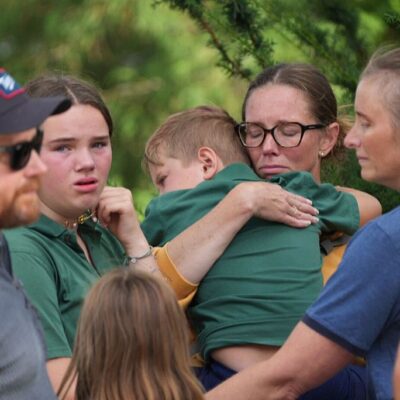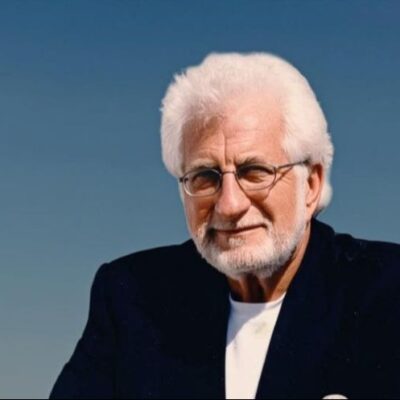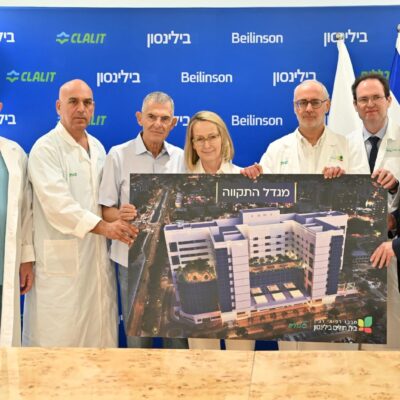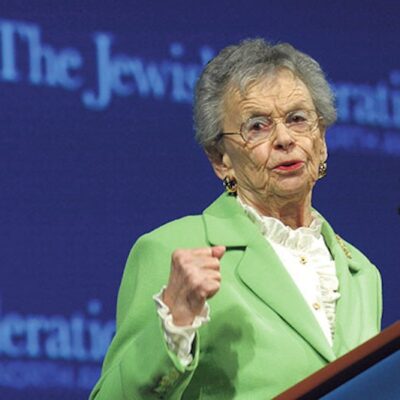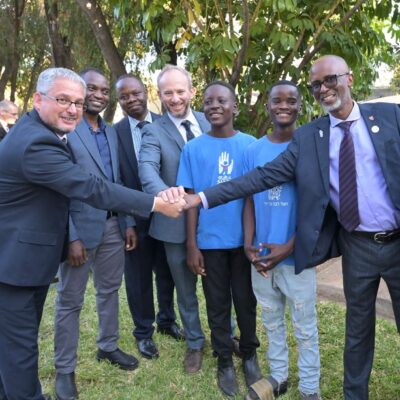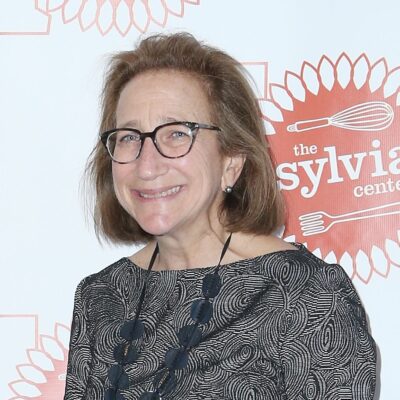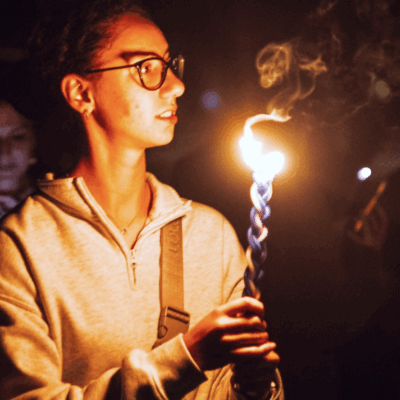Serving Interfaith Families: Current Realities and Opportunities in Conservative Synagogues

By Stacie Garnett-Cook and Rabbi Joshua Rabin
As Conservative synagogues wrestle with the question of interfaith or multi-faith families, USCJ and InterfaithFamily have joined forces to help synagogues welcome this growing population into their congregations. Our organizations do not agree on everything, but we wholeheartedly agree that the more information we curate on the subject, the better congregations will be at engaging this critical population.
Since 2017, the United Synagogues of Conservative Judaism (USCJ) and InterfaithFamily have come together to gather information and share stories about best practices about what it means for twenty-first century synagogues to serve twenty-first century families.
In the fall of 2018, USCJ and InterfaithFamily partnered to survey Conservative congregations policies, trends, and initiatives regarding interfaith families. Responses were collected over a period of three months and analyzed by both organizations.
“We were excited to partner with USCJ on this survey to get a better understanding of what is currently happening in Conservative synagogues. Even among self-identified Conservative Jews, over a quarter of people are in interfaith relationships,” says Stacie Garnett-Cook, Chief Program Officer for InterfaithFamily.
272 congregations responded to the survey, a 46% response rate of USCJ’s total member congregations. In 2016, USCJ conducted a similar survey, and 259 congregations responded, a 44% response rate. A full breakdown of who filled out the survey, as well as the size and location of the congregation, can be found in the full report.
Here are some of the key findings:
- Membership Policies Rapidly Changing: In 2016, 13.51% of responding congregations said that they allow partners who practice a faith other than Judaism to have full voting rights as members. In the 2019 survey, that number rose to 32.51%, over double the total in the 2016 survey, plus another 8.64% of respondents who said that their congregation is in the process of making this change.
- Ritual Policies Steadily Changing: In the section on ritual life, the percentage of Conservative synagogues that permit participants of another faith to open the ark, hold an aufruf (engagement) for an interfaith couple in synagogue, and who will refer interfaith couples to a licensed rabbi or wedding officiant, all showed modest increases from the data collected in 2016.
- Focus More on Grandparents: The first section of the survey asked respondents to rate the relative importance of engaging specific constituencies on the needs of interfaith families, and 19.48% respondents rated increasing programming for grandparents with grandchildren being raised in interfaith households as very important, higher than the questions on engaging preschool families, congregational school families, or adult education participants.
- Some Leaders Question the Value of Outreach: Respondents differed on the relative importance of engaging interfaith families or endogamous families. 77% of respondents rated engaging interfaith families to become members as important or very important. However, 45.49% of respondents rated engaging in-married families as important or very important because they question the value of outreach to interfaith families.
“The results show us where there are opportunities for Conservative synagogues to be more inclusive of interfaith families, and where InterfaithFamily as an organization can help or offer resources. The truth is that there is a lot they can do within the boundaries of halakha. They just need the will to do it,” says Garnett-Cook.
Rabbi Joshua Rabin, Senior Director for Synagogue Leadership for USCJ, writes, “A thriving congregation strives to serve every Jew and Jewish family who wants to deepen their connection to Judaism. Tremendous opportunity exists for our congregations to deepen their work with interfaith families while doing so in a manner consistent with Conservative Judaism. We are grateful for the partnership we have with InterfaithFamily that helps support our efforts.”
Stacie Garnett-Cook will be presenting the joint findings in a workshop this December at 20/20 Judaism, a collaborative convention of USCJ and the Rabbinical Assembly. Both organizations are proud that the conference will include many speakers on the role of interfaith families in Conservative congregations, including Jodi Bromberg, Rabbi Cara Weinstein Rosenthal, Dr. Ruth Nemzoff, Rabbi Adam Greenwald, and Dr. Keren McGinity.
All Conservative synagogues are invited to contact both USCJ and InterfaithFamily for support, resources, and professional development. The full report can be found here, and specifics examples from congregations around the country can be found in USCJ and InterfaithFamily’s joint resource, A Synagogue for All Families. Rabbi Joshua Rabin and Stacie Garnett-Cook discuss the unique partnership between both organizations in “Why InterfaithFamily and USCJ Partnered to Help Conservative Synagogues Engage Interfaith Families.”
Stacie Garnett-Cook is the Chief Program Officer for InterfaithFamily. Stacie has a Masters in Organization Development and a background in community organizing. You can contact her at stacieg@interfaithfamily.com.
Rabbi Joshua Rabin is the Senior Director of Synagogue Leadership at USCJ, and is the Program Director of the 20/20 Judaism, a collaborative convention of USCJ and the Rabbinical Assembly (which you should totally register for to get the early-bird rate).

